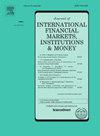金融发展与财富不平等关系的非线性
IF 6.1
2区 经济学
Q1 BUSINESS, FINANCE
Journal of International Financial Markets Institutions & Money
Pub Date : 2025-02-04
DOI:10.1016/j.intfin.2025.102117
引用次数: 0
摘要
日益加剧的收入和财富不平等再次引起了人们对其决定因素的关注,并将金融部门定位为当前辩论的核心焦点。然而,关于金融发展与经济不平等之间关系的争议依然存在。大部分实证文献关注的是收入不平等,而财富不平等受到的关注相对较少。鉴于财富的极端集中及其对经济机会和政治权力的影响,本文探讨了是金融发展过度还是不足导致了财富分配差距的扩大。利用跨国面板数据框架,研究发现,金融发展会加剧财富不平等,因为在达到一定临界点之前,财富会向顶端集中,而底层 50%的财富份额会减少。超过这个临界点,金融发展会导致顶部财富份额减少,底部 50%财富份额增加,从而缩小财富不平等。收入不平等的情况也是如此。途径分析表明,这些影响部分是通过创业产生的。金融发展不足对财富和收入分配都有不利影响。本文章由计算机程序翻译,如有差异,请以英文原文为准。
Nonlinearity in the nexus between financial development and wealth inequality
Rising income and wealth inequality have renewed interest in their determinants, positioning the financial sector as a central focus of the ongoing debate. Nevertheless, controversy persists regarding the relationship between financial development and economic inequality. While much of the empirical literature focuses on income inequality, wealth inequality has received comparatively less attention. Given the extreme concentration of wealth and its influence on economic opportunity and political power, this paper explores whether it is excessive or insufficient financial development that contributes to the widening disparities in wealth distribution. Using a cross-country panel data framework, the study finds that financial development exacerbates wealth inequality by increasing wealth concentration at the top and diminishing wealth shares in the bottom 50% up to a certain threshold. Beyond this point, financial development results in a reduction of top wealth shares and an increase in the wealth shares of the bottom 50%, thereby narrowing wealth inequality. A similar pattern is observed for income inequality. Pathway analyses indicate that these effects are partially mediated through entrepreneurship. Insufficient financial development adversely impacts both wealth and income distribution.
求助全文
通过发布文献求助,成功后即可免费获取论文全文。
去求助
来源期刊
CiteScore
6.60
自引率
10.00%
发文量
142
期刊介绍:
International trade, financing and investments, and the related cash and credit transactions, have grown at an extremely rapid pace in recent years. The international monetary system has continued to evolve to accommodate the need for foreign-currency denominated transactions and in the process has provided opportunities for its ongoing observation and study. The purpose of the Journal of International Financial Markets, Institutions & Money is to publish rigorous, original articles dealing with the international aspects of financial markets, institutions and money. Theoretical/conceptual and empirical papers providing meaningful insights into the subject areas will be considered. The following topic areas, although not exhaustive, are representative of the coverage in this Journal. • International financial markets • International securities markets • Foreign exchange markets • Eurocurrency markets • International syndications • Term structures of Eurocurrency rates • Determination of exchange rates • Information, speculation and parity • Forward rates and swaps • International payment mechanisms • International commercial banking; • International investment banking • Central bank intervention • International monetary systems • Balance of payments.

 求助内容:
求助内容: 应助结果提醒方式:
应助结果提醒方式:


